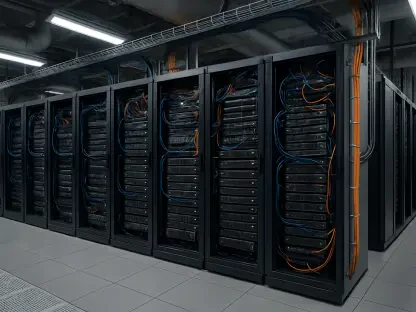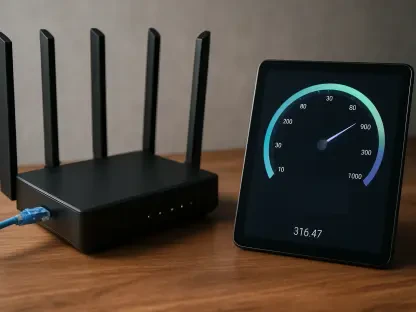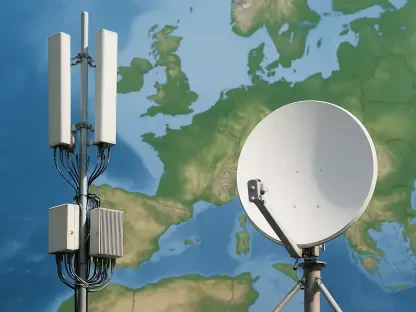In the rapidly evolving telecommunications landscape of Brazil, a medium-sized carrier from Minas Gerais named Algar is making significant strides by pivoting toward a new growth strategy, marking a bold departure from its traditional focus. This company, historically rooted in the corporate B2B market, is now harnessing an innovative partnership to break into the residential internet sector with remarkable efficiency. By collaborating with V.tal, the largest fiber optic neutral network provider in the country, Algar is tapping into a vast infrastructure that spans hundreds of thousands of kilometers and reaches millions of homes. This move not only signifies a departure from traditional, capital-intensive network building but also positions Algar to meet the surging demand for high-speed internet across diverse regions. The implications of this strategic shift are profound, promising faster market entry and reduced financial risks while aligning with broader industry trends toward shared infrastructure models.
A Strategic Pivot to Residential Markets
Algar’s decision to expand into the residential internet space marks a notable shift from its longstanding focus on corporate clients. For years, the company prioritized B2B services, which have been a substantial revenue driver, contributing significantly to its financial standing. However, recent growth in the residential segment, with an 8.2% revenue increase reported in the latest figures, has highlighted untapped potential. By partnering with V.tal, Algar gains access to a pre-existing network that covers over 22 million homes across all Brazilian states. This collaboration allows the carrier to offer high-speed plans of up to 2Gbps in areas previously beyond its reach. The neutral network model, where multiple providers share infrastructure for a monthly fee, eliminates the need for Algar to invest heavily in building its own cables or managing extensive logistics, thereby accelerating its expansion with a leaner cost structure and a sharper competitive edge.
This partnership also serves as a testing ground for Algar to explore new markets with minimized risk. Instead of committing to the prohibitive expenses and lengthy timelines associated with proprietary network development, the company can now scale operations in the 16 states where it currently operates and potentially beyond. The ability to deliver reliable, high-speed connectivity to residential customers without the burden of infrastructure ownership is a game-changer. Márcio de Jesus, Algar’s business director, has underscored the importance of this approach in achieving sustainable growth while maintaining a commitment to quality service. By leveraging V.tal’s extensive fiber optic reach, Algar is not just expanding geographically but also enhancing its operational efficiency. This strategic pivot reflects a pragmatic response to the evolving demands of Brazilian consumers, who increasingly prioritize fast and dependable internet access in their daily lives.
The Power of Neutral Networks in Telecom
Neutral networks are reshaping the telecommunications industry in Brazil, offering a cost-effective solution to the challenges of infrastructure development. V.tal, with its 491,000 kilometers of fiber optics, stands at the forefront of this trend, providing a shared platform that multiple carriers can utilize. For companies like Algar, this model bypasses the traditional hurdles of constructing individual networks, which often involve high capital expenditure and prolonged deployment periods. Instead, carriers can rent access to an established system, enabling rapid market entry and scalability. This collaborative framework is gaining traction as a way to democratize connectivity, particularly for medium-sized players seeking to compete with larger incumbents. The financial benefits are clear, as are the operational advantages, allowing firms to focus on service delivery rather than infrastructure management.
From V.tal’s perspective, partnerships like the one with Algar are equally beneficial, as they diversify its client base and maximize network utilization. Lucas Aliberti, V.tal’s Chief Commercial Officer, has expressed optimism about supporting Algar’s growth, emphasizing the mutual gains of such collaborations. With robust financial performance, including a reported revenue of 7.7 billion reais and a strong EBITDA margin, V.tal is well-positioned to expand its role as a neutral network provider. The company, which inherited its fiber base from a major telecom player and is backed by significant financial entities, aims to reduce reliance on any single client by fostering ties with various carriers. For the industry at large, this trend toward shared infrastructure signals a shift toward efficiency and cooperation, enabling smaller operators to thrive without the burden of massive investments while ensuring that providers like V.tal see steady revenue streams from their extensive networks.
Future Horizons for Connectivity in Brazil
Looking back, Algar’s collaboration with V.tal proved to be a transformative step in navigating the complexities of the telecommunications sector. This partnership enabled the company to transcend its traditional B2B focus and establish a foothold in the residential market, leveraging an expansive neutral network to deliver high-speed internet to new regions. The move demonstrated a forward-thinking approach to overcoming the financial and logistical barriers that often hinder growth, setting a precedent for how medium-sized carriers could adapt and compete in a dynamic environment. By embracing shared infrastructure, Algar not only enhanced its service offerings but also strengthened its market position with agility and precision.
Reflecting on the broader impact, the success of this model highlighted actionable pathways for other telecom players in Brazil. The industry witnessed how neutral networks could foster collaboration, reduce costs, and accelerate connectivity solutions for millions of households. Moving forward, stakeholders could consider deepening such partnerships, exploring innovative pricing structures, or investing in technologies that further optimize shared infrastructure. Additionally, policymakers might evaluate frameworks to encourage neutral network adoption, ensuring equitable access to digital resources. This strategic alliance between Algar and V.tal underscored the potential for sustainable growth, paving the way for a more connected and inclusive digital landscape in the years ahead.









